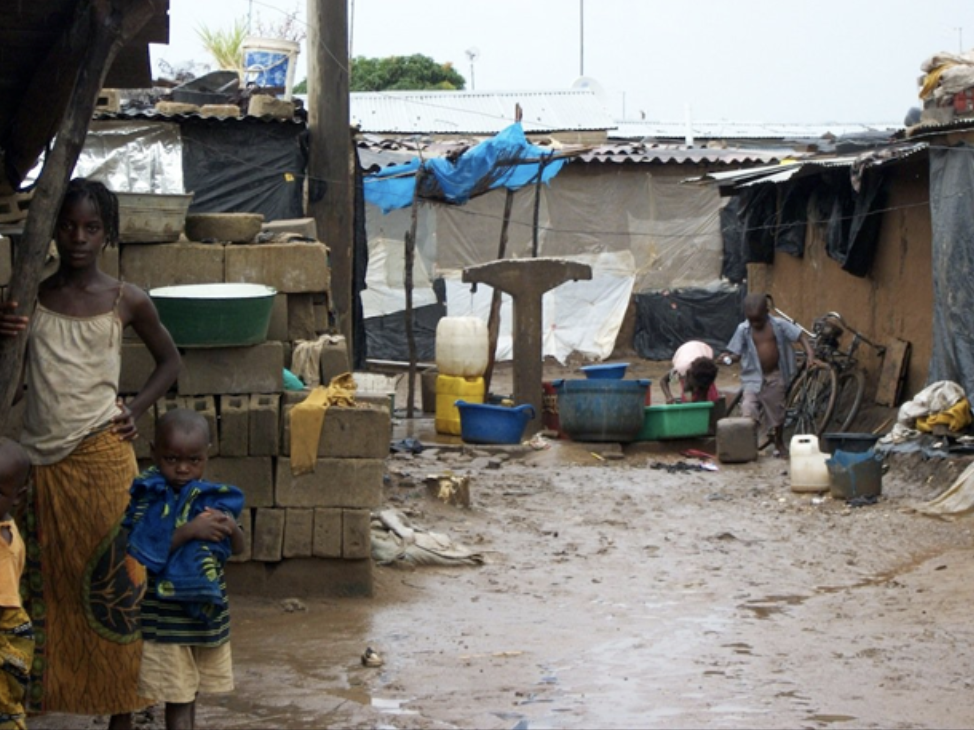Health Concerns in Early Childhood Education Centres: Scenarios in Selected Schools in Zambia
This is the eighth of our ten-part blog series by African Early Childhood Development (ECD) researchers.
Written by Daniel L. Mpolomoka, Lecturer, Unicaf University Zambia; Vivienne Changwe Kasote, Zambian Open University; Moono Muvombo, Lecturer, Kwame Nkrumah University, Zambia; Selina Banda, Lecturer, Copperbelt University, Zambia; Rose Chikopela, Grant Mapoma Mwinsa, Lecturers, Chalimbana University, Zambia. (*Daniel L. Mpolomoka and Rose Chikopela were the only researchers sponsored by ESSA and REAL Centre.)
 Photo:
bing.com
Photo:
bing.com
Introduction
Young children frequently experience illnesses due to their developing immune systems and the high prevalence of contagious viruses and bacteria in their group settings. Recent studies have emphasised the importance of stringent hygiene practices, regular health screenings, and proper infection control measures in mitigating these risks and promoting a healthier learning environment for children. Another recent study looked at improving indoor air quality in schools – which is critical due to the vulnerability of young children and the impact that early childhood environments have on their long-term development. This is because, children in Early Childhood Education (ECE) centres are susceptible to any potential happenings there.
Contextual scenario
Despite young children being generally healthy, they may still face risks such as dental caries, unintentional injuries, developmental disorders, behavioural issues, cognitive delays, and chronic conditions like asthma and obesity. These conditions can affect various aspects of children's lives, including their education, relationships, and their entire human well-being. Most importantly, there is need to clarify that, these health issues are not solely caused by attending ECE placements. However, the excess exposure to environments with inadequate hygiene practices in some ECE centres may trigger these conditions to increase.
Methods
This study employed a case study design. It was conducted at four conveniently selected ECE schools located in Zambia. 24 participants were sampled, comprising two teachers from each school, three ECE learners from each school and one parent whose child goes to the selected school. Interview guides, observations and eQuestionnaires were the main forms of data collection used in the study. Findings were analysed thematically.
Results and discussion
The findings covered three broad areas, namely: types of health concerns in early childhood schools; ECE teachers’ perspectives on the types of health concerns in ECE; and early childhood learners’ standpoints on health concerns in their learning environments.
In the ECE schools we sampled, some present health risks to children, ranging from allergies, asthma, nutrition, food safety to environmental safety. Predominantly, these were because of the way they handled food and the health needs of ECE learners. Most private and community schools did not follow guidelines of ECE provision. They flouted the Ministry of Education, Ministry of Health and the Council prescribed guidelines of safety and operation. Could this be the reason we see health-related problems among early learners in ECE schools?
Parents, ECE learners, ECE school administrators were cognisant of the health concerns in early childhood schools, whose causes were: poor hygiene practices, poor nutritional meals and snacks, inadequate staff and parent health knowledge and training, infectious diseases, environmental surroundings of early childhood schools, allergy and asthma triggers, lack of parental care and social economic factors, mental health, unhealthy eating, and respiratory issues.
 Photo:
bing.com
Photo:
bing.com
ECE teachers shared that children carry these types of food for breakfast and lunch: soya porridge, plain or toast bread, tea or coffee, fruits, maize biscuits, buns, corn puffs, jiggies, nshima with stew (beef, chicken, fish), rice and beans, vegetables stir fry, meat, or fish with vegetables, maize samp, pies, fries, pasta, eggs, maize cobs, cupcakes, cakes, waffles.
Viewpoints of most teachers corroborate those of parents (during focus group discussions) and early learners that health concerns exist in ECE schools. Parents revealed that some ECE schools prepare meals for learners and most children complain about the type of food and the manner it is cooked. This was also mentioned in passing by the ECE school administrators interviewed. One question that stands out then is do schools that prepare meals for the ECE learners obtain heath permits from local authorities?
Unanimously, ECE learners revealed that they suffered diarrhoea, tooth ache, flu/cold, and injury while in school. These made them sleep during class, fail tests, miss tests and classes as they were absent, and generally unable to concentrate in class.
Another notable finding was the significant role of teachers and active parental participation in promoting hygiene practices and health education in ECE. They often serve as frontline advocates for children's health, emphasising the importance of handwashing, sanitation, and nutrition in their daily routines.
Proposed solutions to health concerns
We recommend that ECE schools obtain health permits from the local authority, employ trained cooks, and ensure they adhere to health regulations governing food preparation, storage, and dispensation.
Health and safety risks in early childhood environments should potentially be reduced by maintaining effective public health oversight through assessment, enforcement, and health promotion.
Conclusion
Central to understanding childhood health is recognising the important role their health plays in the period of ECE by focusing on conditions and illnesses that can significantly limit their ability to learn, grow, play, and become healthy.
The findings of this study add evidence to the emerging literature on the types of health concerns in ECE. It further uncovered how health affects early learners. The study recommends introducing policies that prioritise health in early childhood schools, changing health practices, increasing surveillance, employing multi-disciplinary approaches, and holding health promotion campaigns.
ESSA and the Research for Equitable Access and Learning (REAL) Centre, University of Cambridge, are currently working in partnership on an Early Childhood Development (ECD) project with funding from the Conrad N. Hilton Foundation. The project focuses on understanding the ecosystem of ECD researchers and their needs in Ghana, Kenya, Tanzania, and Uganda (with desk-based research for Mozambique).
As part of this project, we sponsored ten ECD researchers to attend the Eastern Africa Regional Early Childhood Conference (EARECC) in Tanzania in March 2024 to give them the opportunity to share their work, network and explore research collaborations.